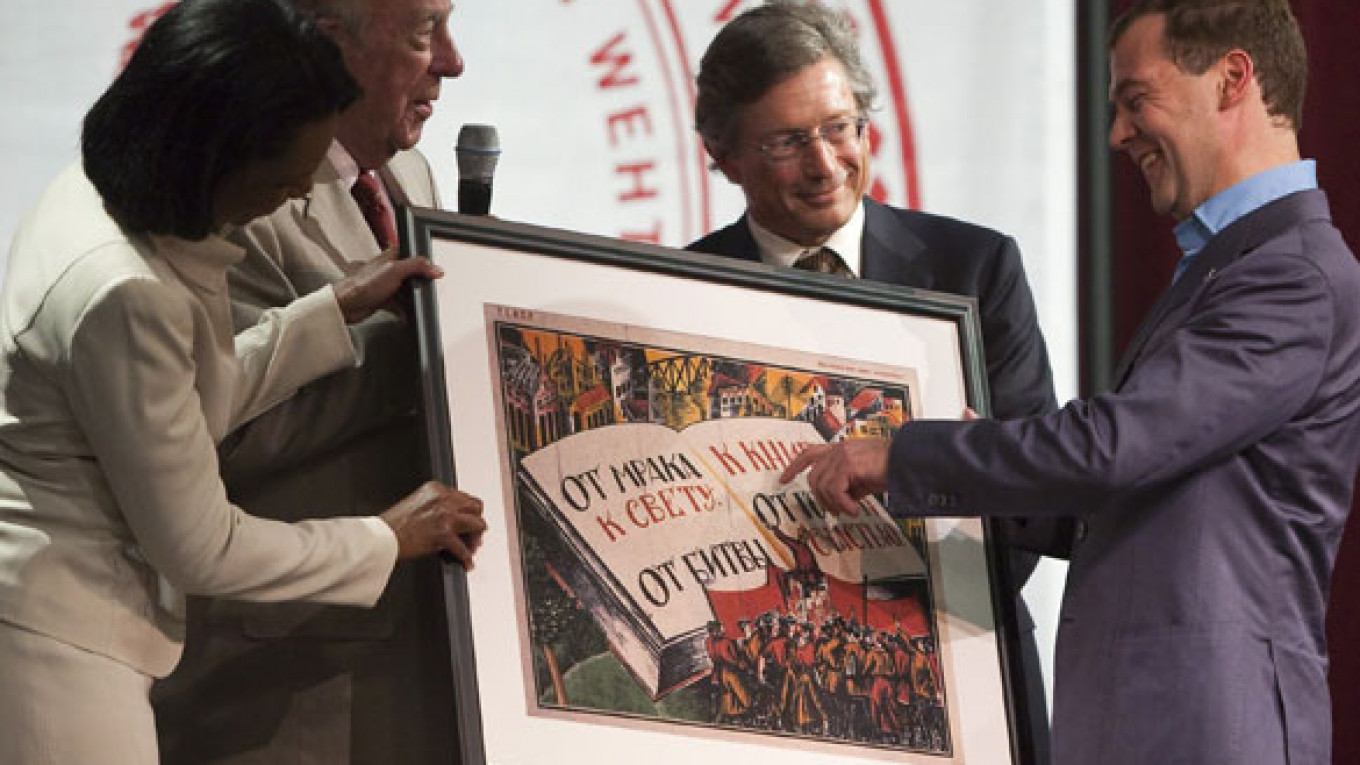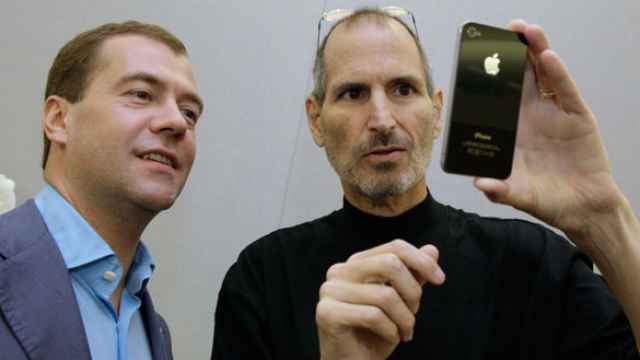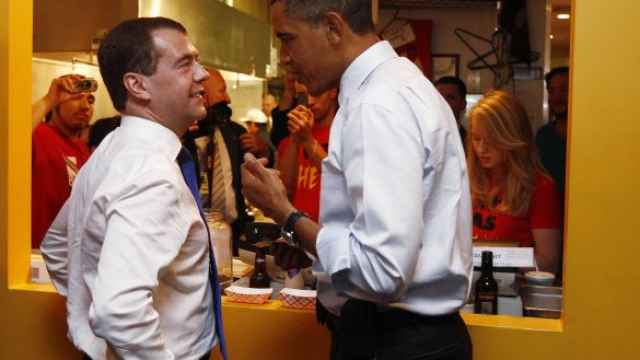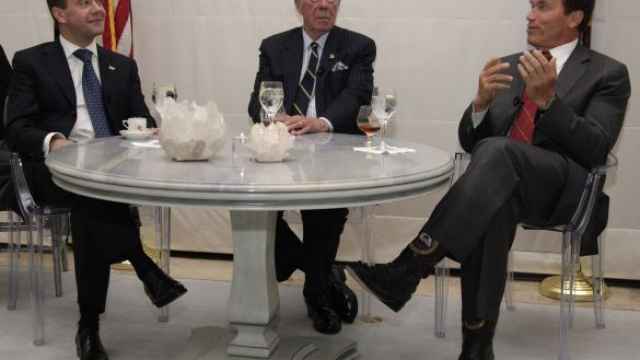Tackling a sensitive issue that he has skirted around in the past, President Dmitry Medvedev has promised to implement political reforms aimed at bolstering the economy but insisted that they be carried out without foreign participation.
Medvedev, speaking to a friendly audience at California's Stanford University, acknowledged that the political system needed to be changed to achieve his goal of modernizing Russia.
"Our political system is constantly developing. … But we, certainly, are not guaranteed against mistakes and are ready to improve our political system," Medvedev said in a speech Wednesday.
Corruption and nepotism stemming from the nontransparency of the government, led by powerful Prime Minister Vladimir Putin, and aggravated by the weakness of all other political institutions are the main obstacles to the country's development, analysts say.
At home, Medvedev has usually avoided discussing changes to the political system, largely fashioned by his mentor, Putin. Just last Saturday, Medvedev said that while economic changes would affect politics, any political changes should not change the system.
"The economy cannot change while political structures remain absolutely stiff," Medvedev said in a speech at the St. Petersburg International Economic Forum. "But we will retain our values and adhere to our traditions and the Russian Constitution."
At Stanford, Medvedev did not specify which political changes might be in the works.
While Medvedev is seen as more liberal than Putin in the West, his credentials for politic reform are few. Among other things, he has amended the Constitution to extend presidential terms to six years — a change that even Putin refused to oversee as president, despite numerous calls to the contrary.
While pledging political changes, Medvedev immediately ruled out foreign involvement in the process. "We will do it ourselves, as we say, without lectures from the outside," he said Wednesday.
Under Putin, the Kremlin has developed a strong phobia of Western governments seeking to undercut Russia's sovereignty, a fear that was bolstered by Western-backed regime changes in Georgia and Ukraine in the 2000s.
Medvedev, a lawyer by training, said legal reform would be a priority in the political overhaul.
"My task as the president is to raise the respect of the court system as much as possible and to provide an effectively working justice system, which is trusted by citizens, on this foundation," Medvedev said.
Medvedev, who has served more than half of his four-year presidential term, said he has already initiated several major economic and political reforms and is considering a bid for a second term in 2012 because he feels a responsibility to see those reforms through to completion.
He said a presidential bid would be linked to whether "plans that I have formulated are being implemented" and whether "there is support from our people."
Medvedev did not say he would consult with Putin, the other member of Russia's ruling tandem. In the past, Medvedev and Putin have replied to questions about the 2012 election by saying the decision depended on consultations with the other.
Speaking of Georgia, Medvedev reiterated his stance that the ties would only improve between the two countries when Georgia elects a new leader.
The Kremlin accuses President Mikheil Saakashvili, a staunch ally of the United States in the Caucasus, of unjustly using force to try to take back Georgia's separatist region of South Ossetia in August 2008. The attempt was quickly squashed by Russia in a five-day war.
A Message from The Moscow Times:
Dear readers,
We are facing unprecedented challenges. Russia's Prosecutor General's Office has designated The Moscow Times as an "undesirable" organization, criminalizing our work and putting our staff at risk of prosecution. This follows our earlier unjust labeling as a "foreign agent."
These actions are direct attempts to silence independent journalism in Russia. The authorities claim our work "discredits the decisions of the Russian leadership." We see things differently: we strive to provide accurate, unbiased reporting on Russia.
We, the journalists of The Moscow Times, refuse to be silenced. But to continue our work, we need your help.
Your support, no matter how small, makes a world of difference. If you can, please support us monthly starting from just $2. It's quick to set up, and every contribution makes a significant impact.
By supporting The Moscow Times, you're defending open, independent journalism in the face of repression. Thank you for standing with us.
Remind me later.







